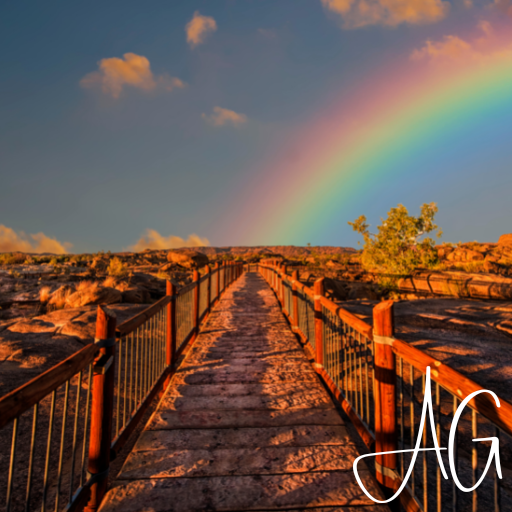One of the reasons I started this website was that I wanted to be able to share resources more easily with people invested in learning more about the LGBTQ+ community and how to support LGBTQ+ people. During grad school, it was difficult to find time to devote to sharing resources the way I wanted. Now that I’m more settled in my post-grad school life, I’m finally ready to start sharing resources more regularly.
Thus, my Resource Roundup! This monthly feature will include a variety of articles, videos, infographics, books, etc. that I’ve encountered during the month which were helpful for me or could be helpful for others. Some of them will be old things I encountered for the first time or rediscovered. Others will be new. But they will all be things that resonated with me during the month I shared them.
So here’s my roundup for the month of January. As I get more into the swing of things, this roundup may eventually be longer but I hope the handful of resources I’m sharing today will be helpful to you!
Articles
- “If Your Partner Just Came Out to You as Non-binary, Here’s How to Support Them.” [Elite Daily]
Shared by a non-binary friend and fellow educator, this article provides great tips for cisgender folks that can be applied outside of romantic relationships. - “What is Asexuality: A Conversation with Angela Chen, Author of Ace: What Asexuality Reveals About Desire, Society, and the Meaning of Sex.” [NEO.Life]
I really enjoyed this interview because it speaks to the power asexuality and aromanticism have to disrupt the typical ways we think about connection, community, and relationship and to offer new approaches that could help even those of us who aren’t asexual or aromantic.
Films/Videos
- “A Living History of the LGBT Movement since the 1800s” [AARP]
When I was looking for a short video to give my middle school GSA a quick overview of LGBTQ+ history, this AARP video ended up being my favorite of the ones I watched. It’s not perfect but it is good enough that I felt it made a great launching off point for more in-depth discussions of specific moments in LGBTQ+ history.
- “Audre Lorde Speaks! March for Lesbian and Gay Rights Washington D.C. 1979”
After a discussion of the first March for Lesbian and Gay Rights, I shared this recording of Audre Lorde speaking at that march with my GSA students. As we look ahead to Black History Month in the US, this recording is something teachers and GSAs could easily incorporate into a lesson. - CURED
This documentary, which should become publicly available later this year, recounts the fight to get homosexuality removed from the Diagnostic & Statistical Manual of Mental Disorders. I got to see a shortened version at Creating Change a few days ago and I immediately wanted to shout from the rooftops that everyone needs to see this film. As a member of the LGBTQ+ community, this film gave me a new sense of gratitude for the activists and advocates who came before me and the legacy of change-makers I am a part of. While I believe everyone could benefit from this film, I think it will be especially useful for psychology students, LGBTQ+ activists, LGBTQ+ history nerds, and those who support “reparative therapy.” - PA Live! feat. Juicy with Jake
This short video featuring my colleague Jacob Kelley includes some great tips for becoming better at using all people’s chosen pronouns and more inclusive overall.
Informative Posts/Graphics
- “Family Behaviors that Increase Your Child’s Wellbeing (For Conservative Families)” [Family Acceptance Project]
I was really struck by this resource by FAP during their workshop at Creating Change because it offers conservative families several behaviors that allow them to hold onto their beliefs without harming and rejecting their child. Besides being useful for families, I think this resource is also helpful for educators or other youth workers who find themselves helping LGBTQ+ youth navigate conservative families. It could be hung up so families could be exposed to it or shared with students as part of a conversation about behaviors they’d like to see and/or ask for from their families. - “intersex advocacy starts with the words we speak.” [Queer Health Pod]
I shared the linked Instagram post to my stories this month because Queer Health Pod did a great job of explaining some basics of language connected to the intersex community in a way that’s easy to understand even for those unfamiliar with the intersex community.
